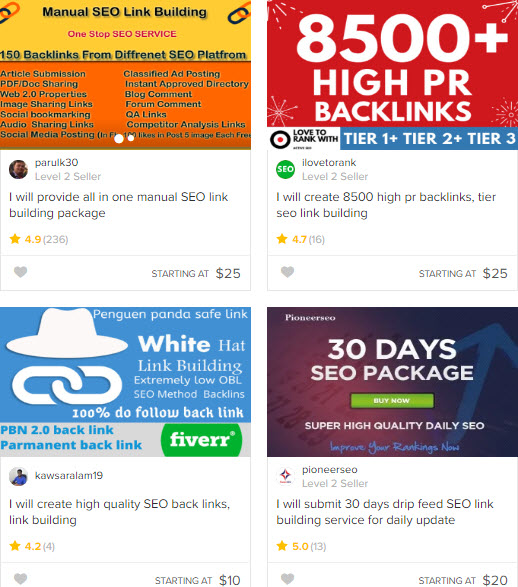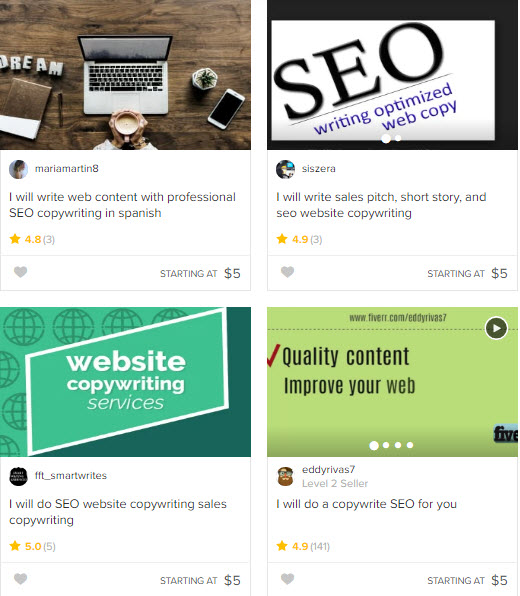Some business owners say things like, “I don’t have enough budget for local SEO.” You may not have money to waste on work that doesn’t work, and you may not have the budget for all the conveniences you want. But the basic activities you can always afford, if you make the right decisions for the right reasons. Half the battle is not wasting money on stuff you don’t need, so that you have some left over for what you do need or really want.
Below are (in my experience) the bad ways and the good ways to try to save money on your local SEO effort. I want to emphasize that they are general rules. I don’t know your exact situation. Sometimes your money is well-spent on something I don’t think is useful for most people. Sometimes you don’t need and wouldn’t benefit from a tool or service I recommend to most people. Sometimes you’re so short on time that your least-bad option is to farm it out. And so on.
Bad ways to save money on local SEO
1. Moving to a cheaper or free website platform just because it’s cheaper or free. I won’t name names. But I will say that whatever money you save on upkeep you’ll probably lose (many times over) because you can’t make basic changes easily, or because you can’t make certain improvements at all. Probably won’t work out the way you want it to.
2. Buying spammy links. May help your rankings short-term, until it doesn’t or until Google whacks you.

3. Working with an “SEO copywriter.” Sounds better than “professional keyword-stuffer.” You’ll end up with a site that’s optimized only skin-deep, and copywriting that makes you sound as exciting as a three-bean salad.

4. Buying Fiverr.com gigs of any kind for SEO-related work of any kind.
5. Working with a cheap (usually local) company.
6. Using a “listings management” SAAS solution (e.g. Yext) rather than pay for one-time manual work on your local listings. (I’m talking about services that claim to take care of pretty much all your listings. Those are different from, say, Moz Local, which often is a good way to take care of a few listings that are a pain to deal with manually.) Hiring an outfit like Whitespark to create, correct, and de-dupe your listings usually isn’t cheap, but unless your business info changes you’ll only need to do it once. (Even then, because you’ll have the logins to most of your listings, making changes will be easier.) If you cancel a listings-management service, many of your listings at some point will revert back to the way they were before you signed up. Also, many directories that matter (especially “niche” sites) aren’t covered by the listings-management service, so you’ll need to do or pay for some amount of manual work anyway. Listings-management software can be useful if you’re a big organization with a ton of locations. Otherwise, “renting” your listings yearly soon becomes more expensive than getting manual work done once.
7. Glad-handing experts in the hope you’ll get free advice and won’t need to pay for any help. People with expertise tend to be in-demand and a little guarded with their time. Aside from not wanting to be known as a tightwad and avoided as one, you run a couple of risks: You risk getting boilerplate advice that isn’t specific enough for you to act on, and you risk getting advice that’s based on a poor understanding of your situation. That advice can mess you up, even if it’s from a great source.
8. Requesting a bunch of proposals just for the free input on your situation. Same issue as in the last point. RFP abusers don’t come away with much.
Good ways to save money on local SEO:
1. Do your own local SEO, or as much of it as you can. (That’s where an in-depth audit can help.) Even if you do only a couple of steps, you’ll make it easier to hire competent helpers later, because they won’t need to be good at quite as many things. You’ll also want your sea legs in case the company you hire doesn’t work out, in which case you are your plan B (at least temporarily). It’s possible you might even take a little satisfaction in it.
2. If you need to get third-party help, consider hiring a website developer and a stunt pen (“content writer”) or copywriter, rather than a marketing agency. With specialists often it’s clearer exactly what you’re paying for, because the scope of work is tighter and there’s less overhead. You’re less likely to pay for the catered lunches, the beanbag chairs, and the bathroom janitor.
3. Keep only one site or very few sites. If one site doesn’t rank, put time into developing it and earning links to it rather than into squeezing out another site that doesn’t rank. Five sites that almost perform don’t get you anywhere. Five Pacers don’t equal a Mercedes.
4. Let your site develop a fine crust. A font you can’t shrink or an image you can’t align is not an emergency. Unless your site is so hard to navigate and use that you know you’re losing business, an ugly site is not why you’re struggling, so you can deal with it once your dance card is fuller and you’ve got more budget.
5. Skip reputation-management tools, unless maybe the one you want to use is supplementary to a review strategy that’s worked for you. If your whole review-encouragement strategy is to use software, you may get good results, but more likely is that would-be reviewers still ignore you. The basic issue is that most customers can tell when they’re asked for a favor by a piece of software rather than by a person they recognize.
6. Run a feeler AdWords campaign for a week rather than use keyword-research tools or SEO tools that require a monthly subscription. The difference is you can see what people do search for, rather than what they probably search for. You’ll be amazed at what you see in an AdWords “Search Terms” report and in other reports, even when you run ads just to glean data and not necessarily to try to get customers.
7. Eschew paid third-party tools in general. (I’d probably make exceptions for Ahrefs and Mouseflow, though.) Focus on building up your internal resources.
8. Skip paid local-business and industry directories. Unless you have reason to believe your listing or ads bring you customers or some other clear benefit, paid-inclusion directories are a slippery slope. Before you know it you’re shelling out for 10 of them every month.
9. Don’t get BBB-accredited just because you think you’ll get a link. These days, for better or for worse, you won’t get a link that helps you. (There are other reasons to consider getting accredited, though.)
10. Don’t pay for LocalEze. I say that not because that data-aggregator isn’t important, but because usually you can take care of your listing(s) there by using Moz Local or by using a citation-building service that has an API relationship with that site and others.
11. Avoid or wean yourself off of listings-management tools (e.g. Yext). Ideally you work on your listings in-house. The second-best option is to get manual work done once and be done with it.
12. Minimize the number of SEO consultants you use. Maybe get a second opinion every now and then, but don’t hire 7 different people. You won’t develop a good strategy by United Nations resolution. If none of the SEO people seems good, don’t settle for the least-bad of the bunch. (In that case, consider doing at least some of the work in-house.)
—
How have you saved money (or blown money) on your local SEO effort?
Have you had success with any of the practices on my “worst ways to save” list?
Leave a comment!

Would not doing anything qualify as a bad way to save money? (ex: client thinks changing the business address to various locations will reap benefits while ignoring obvious website inequities).
I believe it would, my good fellow.
13. Meh, local links. 😉 Happy New Year Phil!
Meh® the new year bring you joy 🙂
HI Phil – GREAT article, as usual. I did want to chime in on Whitespark.ca ‘s citation clean up services. You mention in your article that whitespark’s service “isn’t cheap”, but I have used them numerous times for my clients, (especially for those that have moved), and they are actually quite reasonably priced. AND they have extremely talented/well trained persons on their team. So yes, shameless plug here for Darren’s team, but wanted to mention it is a very affordable service for the work they do and i haven’t had a client turn down the service, due to the cost, yet. They are also willing to customize a package for bigger projects. Just wanted to mention that,. Hope you are well, sir!
Thanks, Susan! Doing great, and hope you are, too.
I use Whitespak’s service from time to time (usually for “niche” listings), and agree that it’s affordable, especially in the grand scheme of things. It’s just that some people will point out that in terms of initial cost, using a Yext-type service costs less. Of course, after about a year the latter starts costing more. So, as you know, the manual work is way less expensive long-term.
Yes, I agree. And It can be expensive if you have a large number of locations too.
I’m glad someone called out YEXT for sucking. I really hate there seems to be so much widespread acceptance of something that’s a blatant rip-off [cough, SEMRush, cough]
RE: # 8 and the industry directories — Many of my clients are attorneys.
As you know, the directories dominate the local search queries.
I’m finding it hard to tell them to ignore FindLaw, Avvo, Justia, Lawyers.com, etc. I know it IS a slippery slope, but some of the directories pass good value.
Any tips for assessing that? Monthly traffic, Unique users, search positions, etc?
GA referral traffic. “Where you can” (w/o messing up NAP), tracking numbers. UTM Parameters.
One more: STAT Search Analytics (Moz) to show directory share of voice.
Yext and similar services can be useful for enterprise local SEO. But in other situations not so much.
Re. #8 my general point is the “deluxe” listings should be on the chopping block, especially if the free listing is decent. But I agree it’s a judgment call, and often a tough one. A couple of posts that may help:
https://whitespark.ca/blog/how-to-identify-quality-citation-sources/
https://www.localvisibilitysystem.com/2016/11/15/do-you-really-need-to-clean-up-that-local-citation/
Nice list, Phil. Happy New Year. Just interesting to me that you suggested skipping Rep Management companies. Frankly I haven’t used them so I’m unfamiliar with costs. Our oldest smb’s were direct asking customers for feedback/reviews long before there was a web. We had thousands of written reviews. We actually used the negative comments to “fix” or refine our services. Again that was years before the web. By the time reviews hit the web, we switched from asking for written reviews to asking for web reviews. We have tons of them, especially for the older businesses. More relevantly b/c we listened to customer feedback we had and continue to get amazingly great feedback. Our review “corpus” is remarkable with great reviews.
To this day I’m amazed at the great reviews. I’d say if you aren’t using a system (and being ignorant about costs) get feedback and listen to it. The feedback is about your customer service. It can make or break a business. BTW: Our niche businesses are really not well known but they get about 25-30% direct referrals for new business. In our industries that is insanely high.
On the Yext thing…I’d say get over it. Last time I looked, yext doesn’t mention a THING about rankings in its literature. I’m saying get over it to SMB’s. Specifically smb’s with one or a few locations. Its worthless for ranking and after I posted on this on twitter “Howard” liked the tweet. Yext doesn’t mention rankings….at least not months ago. If their salespeople “sell it”….well they are sales people–they’ll say anything. Its worthless for rankings. If you are an enterprise business with tons of locations….well maybe its worth the money for management–but don’t buy into rankings help. It won’t work.
On links. They have ALWAYS ALWAYS ALWAYS been valuable. Links are so much tougher to get than in the past and often tough for a “humdrum” or common place service. Local links are out there.
Just a couple (maybe one two or three really good links can make an enormous difference. Come up with something “bright” or different. Research stuff. Talk about your business and listen to what people say.
Then hire that talented copywriter and publish something that powerful sites will link to. If (and when–fingers crossed) valuable sites link to it–you are a quality winner!!!!
Here is to another good year.
Dave
Thanks, Dave. Happy New Year’s.
Your approach to reviews sounds good. I agree that everyone needs a system; just doesn’t need to be third-party software. Those can be (and often are) great. But if one’s review strategy works poorly, an ORM tool rarely changes that. (Plus, it can burn through your list of people to ask, and wears out your welcome.)
I appreciate the nice list. I have a small local one-man law office that has to compete with three larger multi lawyer offices for placement. I don’t have a lot of money or a lot of time. At one time, I did all the SEO, link building, website maintenance, and writing myself and had 2 or 3 of the top 5 placements. I wish I had an SEO firm I could trust for the links and content building. SEO isn’t my job. Being in court and saving homes from foreclosures is. Whitespark did an excellent job for me almost ten years ago and it has stuck and permanently given me the #1 position for local. I have owned that local listing #1 position in a highly contested area for the last ten years. The emails and offers I get from SEO firms are just rip-offs. Almost all lawyers have learned to avoid even the trusted resources we used to buy our books from. One company sold 4-5 firms websites based on promises for the #1 position for “Louisville bankruptcy attorney.” They didn’t deliver to any of the 4. This is what clients deal with. Only the white hat methods work. What we have is a black hat market, which makes selling SEO hard.
It’s a wasteland out there, Nick.
In your case, I suspect it won’t be too hard to run the machinery yourself. At this stage it’s mostly link-earning, much of which needs to involve you personally anyway. Relevant posts:
https://www.localvisibilitysystem.com/2016/12/15/one-time-work-vs-ongoing-work-in-local-seo/
https://www.localvisibilitysystem.com/2018/01/18/11-no-outreach-no-content-ways-local-seos-can-help-businesses-rustle-up-good-links/
https://www.localvisibilitysystem.com/2019/01/15/when-should-you-do-your-own-local-seo/
Nick, I noticed you aren’t in the number 1 position anymore for that search term. What do you think has changed? I show you as #3 in the local pack.
Great article, Phil! Lots of excellent bits of advice. Happy New Years. Here’s to a great 2020!
Thanks, Garrett. Happy New Year’s!
I think the best way to save money on SEO is to learn how to do a little bit yourself and not have to farm out the basics. Each SEO deliveable is pretty simple, you might need some help figuring out how they all fit togethor though in the end.
I couldn’t agree more, Bruce.